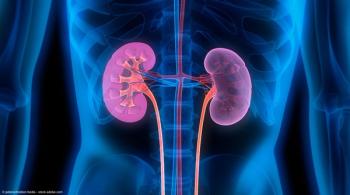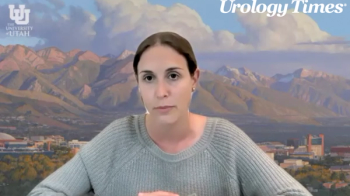
How are you educating yourself on transgender issues?
"All we can do as physicians is reach out to patients with dignity and respect for who they recognize themselves to be," says one urologist.
"We’re not typically well-educated on transgender issues, but we deal with them. We need background knowledge regarding the surgical experience and increased knowledge of what transgender is, and the proper vocabulary. That’s definitely something we can work on.
There are centers of excellence for surgeries; they aren’t done everywhere. The procedures aren’t common, so you don’t want every hospital doing one every 2 years.
At Brown, we have an active, cutting-edge adolescent medicine program. I see patients who are referred for an orchiectomy, for example, if they have gone through all the steps. We start hormones earlier than we used to. It’s been proven to make the transition from male to female a little easier, even from female to male.
Also see:
We have a multidisciplinary team involving social work, psych, pediatrics, endocrinology, and urology, and we’re expanding into reconstructive surgery. We did our first adult vaginoplasty, from male to female, about a year ago. We haven’t done adolescent surgery; they just haven’t been ready, which is not surprising.
I am involved with transgender education, but don’t teach transgender surgery. I think we have one lecture a year in our residency program about the adolescent program. The surgery itself is not taught in residency because access to those patients is infrequent, but residents are welcome to observe.
We see very early stages of transgenderism in pediatrics; it’s more common than we think. They may declare themselves when slightly older teenager/young adults, but I treat transgender patients for all urologic issues.
It takes education in your practice: the right pronouns, proper vocabulary. Just changing medical records is tough. Hospital records can be changed, then patients get to an office and don’t want to be referred to as he/she. You can change intake forms to differentiate sex/gender because their sex may not be their gender. That’s something all medical students should be educated in.”
Liza Aguiar, MD / Providence, RI
Next:
"Basically, we’re looking for ways to educate ourselves regarding transgender medical care-what is available in the literature versus what is political correctness. What is science versus emotion is very difficult to discern. All we can do as physicians is reach out to patients with dignity and respect for who they recognize themselves to be. Right now, I’m not sure there’s much else to do.
Read:
I’ve found a lot of literature to be somewhat biased to one degree or another. A lot of it, quite frankly, is in the lay press, not so much in our literature. What is the science behind transgender? I’ve found the amount of evidence-based information really lacking.
Urologists are trying to answer basic questions. What are the definitions? Where are the fine lines drawn between transgender versus transsexual versus homosexual and how much crossover is there between them? Where do you put an XY female who is attracted to men? Then, is that person transgender, genetically male but they identify as female? Just starting with the definitions, where are we?
Also see:
The kind of gradations and where they fit in that spectrum is hard for urologists and doctors. You don’t want to be offensive to anybody.”
Scott Montgomery, MD / Merriam, KS
Next:
"Because we touch on the sexual medicine/reproductive health side of things, it’s a hot topic in this state. I’m immediate past president of the Washington State Urology Society; we focused on this because a lot of people want to learn more. We’re bringing a physician in to talk about it at our state society meeting, hoping to learn from an expert.
The AUA has a focus on transgender medicine as well. Most urologists really aren’t trying to dabble in the reconstructive surgery aspect of transgender medicine, but most of us want to be respectful and use our pronouns appropriately. There’s a lot of interest in our community in treating folks with respect and understanding. That’s what we’re after education-wise.
Read:
Centers of excellence are the only ones who should be doing this type of care, because it’s a multispecialty approach-you need someplace that has the resources to provide multispecialty support. But these patients are going to show up in ERs with urgent issues. We need to understand the anatomy and how things are reconstructed so we can deal with them appropriately.
As an example, if you have a transgender patient who’s had surgery show up with urinary retention in your ER 6 weeks after an intervention, it’s important to understand the procedure they had, so we’re better able to care for those issues.
For something that’s not an acute problem, we’ll send them back to their surgeons.”
Jeffrey Evans, MD / Burien, WA
Newsletter
Stay current with the latest urology news and practice-changing insights — sign up now for the essential updates every urologist needs.






